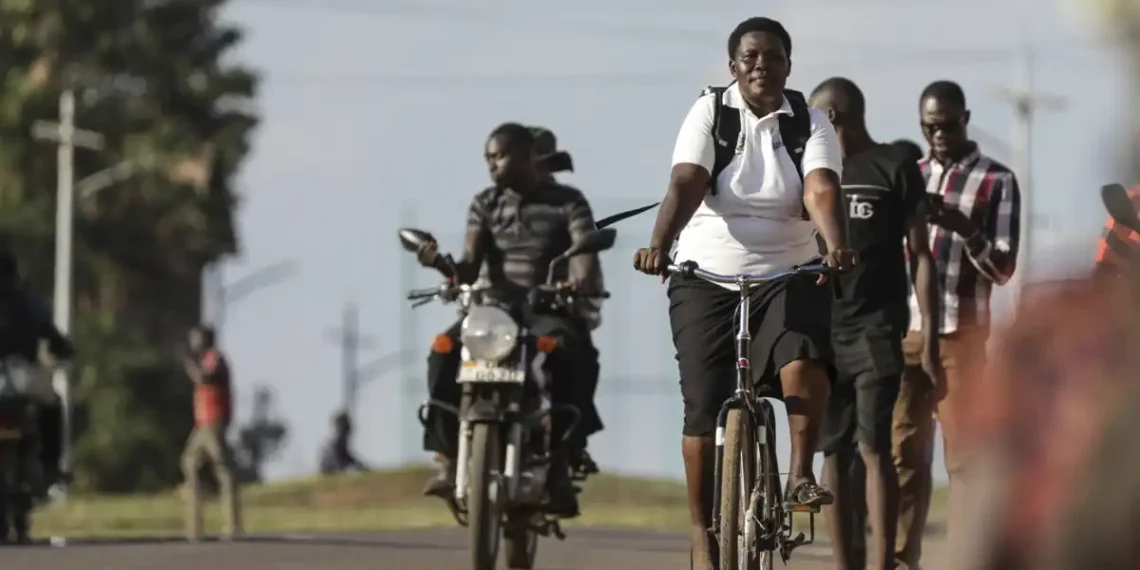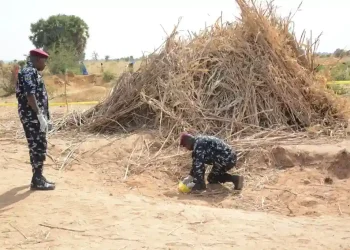How Rugged Bicycles Are Saving Lives in Rural Uganda
LIRA, Uganda — In a quiet village in northern Uganda, a sturdy bicycle leans against the wall of Lucy Abalo’s home. It’s not just hers — it belongs to the entire community.
Need a ride to the health center for a pregnancy check-up? Pick up HIV medication? Rush a child to the hospital? Just knock on Lucy’s door.
“The goodness about this bike,” she says, “is its availability to all.”
That rugged, steel-framed ride is called the Buffalo Bicycle — and it’s changing lives in places where the roads are rough and healthcare is far from reach.
Built for the Journey: The Buffalo Bicycle
The Buffalo Bicycle, designed by World Bicycle Relief, a Chicago-based nonprofit, is no ordinary bike. Built with heavy-duty steel and reinforced components, it’s made to handle the brutal terrain of rural Africa — from washed-out roads to narrow dirt tracks.
Retailing for around $200, it’s significantly more expensive than the average bicycle — and out of reach for most rural health workers who often work without a salary. But for those who have one, it’s a game-changer.
“It wasn’t easy at first,” Abalo recalls with a laugh. “I felt like I was learning to ride all over again.”
Delivering Healthcare on Two Wheels
Lucy Abalo is one of 331 community health extension workers (CHEWs) in Uganda who received a Buffalo Bicycle in a partnership between World Bicycle Relief and Uganda’s Ministry of Health. In her village, she’s known as a “village doctor” — a go-to for emergencies and health guidance.
She looks after nearly 8,000 people, visiting homes, triaging patients, and reporting to a government clinic 5 kilometers (3 miles) away — often multiple times a week. For health workers like her, transport isn’t a luxury — it’s a lifeline.
A recent study by World Bicycle Relief found that CHEWs with bicycles were able to double the number of households they reached each week and cut their travel time to clinics nearly in half.
“Mobility is not a luxury in healthcare,” said CEO Dave Neiswander. “It’s a lifeline.”
One Bike, Many Lives
The impact goes far beyond numbers.
One evening earlier this year, a 4-year-old boy in the village suffered a severe cut while playing. His parents were away. Abalo, bike at the ready, rushed him to a nearby facility where he briefly lost consciousness before being revived.
“That bike, not me, saved the life of that child,” she said. “If it hadn’t been there, I don’t know what would have happened.”
Her neighbor, Babra Akello, has borrowed the bicycle six times — the first time to attend an antenatal appointment. She praises both the bike and Abalo’s readiness to help.
A Broader Push for Better Health Access
Uganda, a country of 45 million, still faces major healthcare access challenges. Many rural facilities lack ambulances or even fuel, and health workers often travel long distances on foot.
Since 2023, Buffalo Bicycles Uganda has focused on two districts, including Lira, 274 miles north of the capital, Kampala. With growing demand, health officials like Diana Atwine, the Ministry of Health’s permanent secretary, are calling for more bikes across the country.
“Front-line health workers save an unknown number of lives each year,” Atwine said. “We must give them the tools they need.”
More Than a Bike
For rural Uganda, the Buffalo Bicycle is more than transportation — it’s an extension of the healthcare system itself. It’s a mobile clinic, a community ambulance, and in many cases, a second chance at life.
And in villages like Lucy Abalo’s, it’s always ready for the next knock at the door.
This article was rewritten by JournosNews.com based on verified reporting from trusted sources. The content has been independently reviewed, fact-checked, and edited for accuracy, neutrality, tone, and global readability in accordance with Google News and AdSense standards.
All opinions, quotes, or statements from contributors, experts, or sourced organizations do not necessarily reflect the views of JournosNews.com. JournosNews.com maintains full editorial independence from any external funders, sponsors, or organizations.
Stay informed with JournosNews.com — your trusted source for verified global reporting and in-depth analysis. Follow us on Google News, BlueSky, and X for real-time updates.














